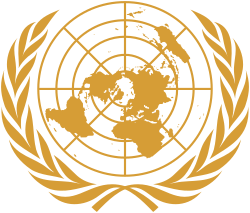| Part of a series on the |
| UN Security Council resolutions |
|---|
 |
| Permanent members |
| Resolutions 1 to 1000 |
| Resolutions 1001 to 2000 |
| Resolutions 2001 to 3000 |
| Resolutions by topic |
| Vetoed resolutions |
United Nations Security Council resolutions are United Nations resolutions adopted by the fifteen members of the Security Council (UNSC); the United Nations (UN) body charged with "primary responsibility for the maintenance of international peace and security". [1]